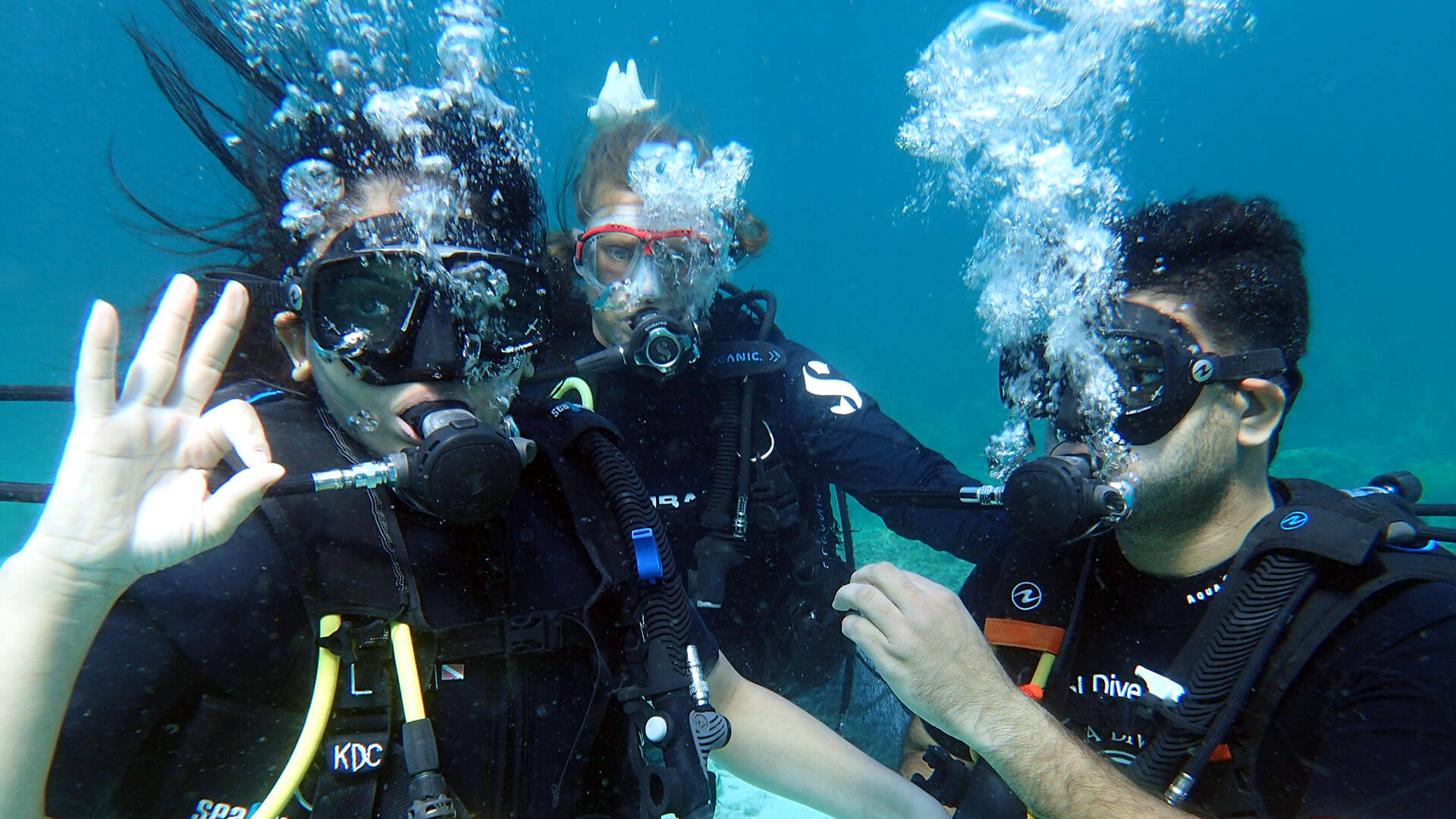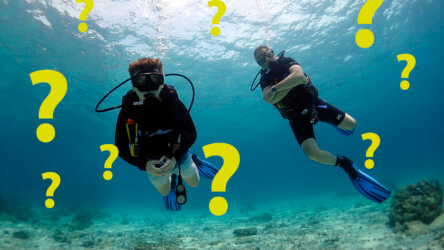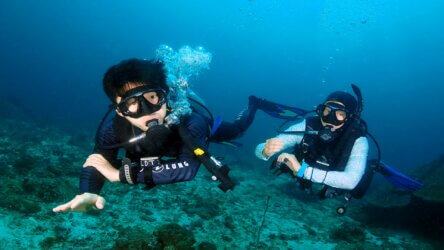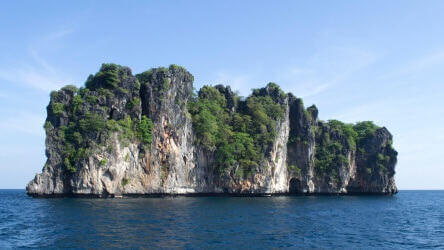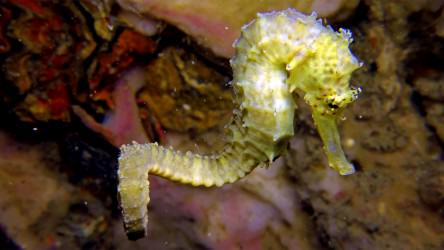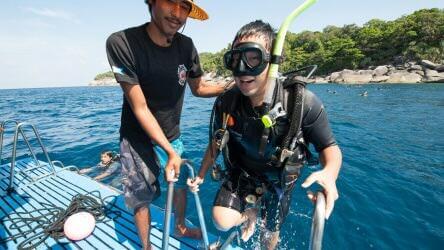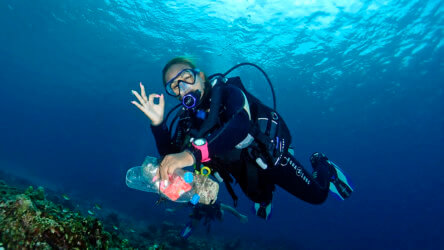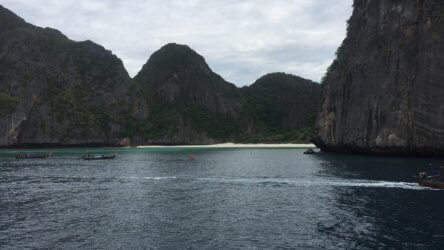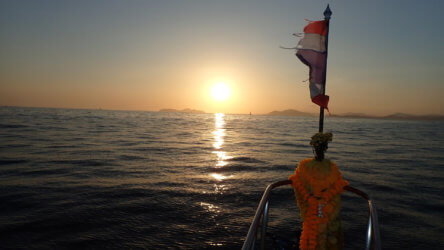Manage Your Air And See More
Let’s first start by saying that it’s not a competition. Having good scuba air consumption doesn’t necessarily make you a better diver. If you’re ending the dive 20 or 30 bar behind your buddy but still reaching your planned bottom time then it’s nothing to worry about and could simply be physiological differences that are extremely difficult to overcome. Having said that we do have numerous instructors around Phuket that can only be described as ‘big units’ and they seem to manage just fine so there is always room for improvement.
If however you’re constantly ending your dives on air consumption rather than planned bottom times. Then it may be time to re-evaluate your diving technique and the equipment you use. We’ll give some potential solutions that may prevent the evil stares from your diving buddies and lack of invites to dive events…
Breathing
Yes you’ll need to do this and make sure you do it properly. Slow deep breaths is the only way to do it. Shallow breathing and skip breathing is a definite no. If you don’t get enough oxygen circulating around your body then you could pass out – embarrassing on land, deadly underwater.
One thing we commonly encounter amongst even experienced divers is a long and slow breath with a quick exhalation. Try to make your outgoing breath as long as your slow breath in. Could be a very simple and easy to fix solution.
Ask For Advice
It’s not a given that your guide will advise you on how to improve your techniques. Not everybody responds well to constructive criticism. So there is a reluctance to jump in and tell you that you need to change. Please feel free to ask any of our guides/instructors, they’re always willing to give advice when asked.
Gain Confidence And Skills
Continuing your dive education will not only improve your skill set but aids with confidence. The more confident and relaxed you are when diving the more likely you’ll be able to slow your breathing and reduce your air consumption. Peak Performance Buoyancy is the stand out specialty that will improve control and breathing. Others such as navigation will assist with underwater confidence.
Good buoyancy is absolutely key when it comes to reducing effort and reducing air consumption. When you stop to look at something ideally you should just hover. If you find yourself finning to stay in position then you’re not neutrally buoyant. Next time you dive try stopping and hovering every few minutes to make sure you are neutral.
Slow Down
It goes without saying that the more you kick the more you’ll breath. Take it nice and slow, many of the animals are extremely well camouflaged and if you go racing around the dive site you’ll miss more than you’ll see.
You have probably noticed that experienced and professional divers require seemingly no effort to navigate themselves around the dive site and keep movement to a minimum. Diving is a hobby were less is definitely more. Try to keep arm and hand movements to a bare minimum. They assist very little with propulsion when compared to your fins and basically just waste energy. Try folding your arms across your chest as many pro’s do.
Equipment
Regulators in good working order and regularly serviced should be a given, don’t let those small leaks build up. Eventually apart from the obvious safety issue they could represent significant air loss.
Your BCD should vent/add air smoothly and be a good fit. Having a BCD that’s too large will increase drag and allow your tank to change position. Which will upset your balance and cause you to expend unnecessary energy.
A good fitting mask shouldn’t leak, constantly clearing your mask will waste air. Make sure you properly defog your mask before the dive to avoid any anxiety. Fins should be smooth and suitable for the environment. Being held together by tape or cable ties is not only a bad look but will decrease efficiency.
Don’t look like a Christmas Tree, keep the extras to a minimum or to what can be easily stored in your BCD pockets. Having various, generally useless pieces of dive equipment dangling around everywhere will increase drag and possibly snag and break corals.
Ample Preparation
Make sure you’re ready well ahead of dive time. Set up and check your equipment so you won’t be rushing around on the dive deck after the brief. Get a good nights sleep and be well rested to fully enjoy your dives.
Preparing your body for diving also shouldn’t be ignored. Generally we like to avoid hard work underwater and go with the current rather than fight against it. There will be times when you have to fin a little against the current to find the next bit of shelter. Having a decent fitness level will help you reduce the amount of air your body demands in these situations.
If All Else Fails
You’ll see plenty of divers using the larger 15L tanks on our Phuket diving boat MV Kebsup. This doesn’t mean they’re bad divers it just means their bodies require more air. It’s often just down to physiology. There’s plenty of very experienced divers and even professionals who will use the larger tanks.
At a push you could dive a little shallower than your buddy but only a little. You must remember to stay within a safe distance incase of emergency and make sure everybody is aware of your positioning in the dive brief.
Most importantly of all is to continue to enjoy your diving. One or more of these suggestions will helpfully ring a bell with you and give you something to consider the next time you go diving. Our expert office staff are always willing to help so if you want to address the issue before your next div trip then send us an email to info@localdivethailand.com and hopefully we can help you out.
Posted in Scuba Diving For Beginners on .
